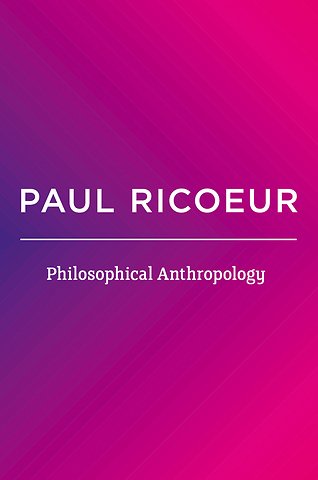
Philosophical Anthropology
Samenvatting
How do human beings become human? This question lies behind the so–called human sciences. But these disciplines are scattered among many different departments and hold up a cracked mirror to humankind. This is why, in the view of Paul Ricoeur, we need to develop a philosophical anthropology, one that has a much older history but still offers many untapped resources.
This appeal to a specifically philosophical approach to questions regarding what it was to be human did not stop Ricoeur from entering into dialogue with other disciplines and approaches, such as psychoanalysis, history, sociology, anthropology, linguistics and the philosophy of language, in order to offer an up–to–date reflection on what he saw as the fundamental issues. For there is clearly not a simple, single answer to the question what is it to be human? Ricoeur therefore takes up the complexity of this question in terms of the tensions he sees between the voluntary and the involuntary, acting and suffering, autonomy and vulnerability, capacity and fragility, and identity and otherness.
The texts brought together in this volume provide an overall view of the development of Ricoeur’s philosophical thinking on the question of what it is to be human, from his early 1939 lecture on Attention to his remarks on receiving the Kluge Prize in 2004, a few months before his death.
Specificaties
Inhoudsopgave
<p>1. Attention: A Phenomenological Study of Attention and its Philosophical Connections</p>
<p>2. The Unity of the Voluntary and the Involuntary as a Limit–Idea</p>
<p>3. The Problem of the Will and Philosophical Discourse</p>
<p>4. The Phenomenology of the Will and the Approach through Ordinary Language</p>
<p>II. Semantics of Action</p>
<p>5. The Symbol Gives Rise to Thought</p>
<p>6. Freedom</p>
<p>7. Myth</p>
<p>8. The Symbolic Structure of Action</p>
<p>9. Human Beings as the Subject of Philosophy</p>
<p>III. Hermeneutics of the Self</p>
<p>10. Individual and Personal Identity</p>
<p>11. Narrative Identity</p>
<p>12. The Paradoxes of Identity</p>
<p>13. Strangeness Many Times Over</p>
<p>14. The Addressee of Religion: The Capable Human Being</p>